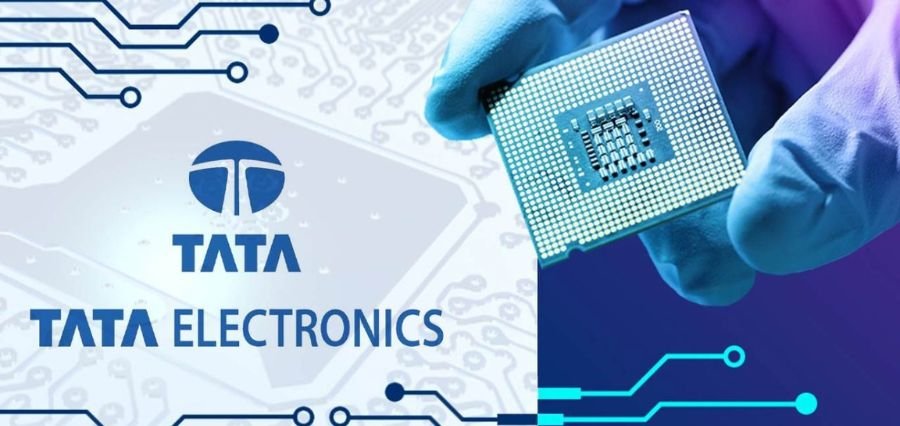Prime Highlights
- More than 200 staff are being sent by Tata Electronics to Taiwan for advanced chip fabrication training in PSMC.
- The ₹91,000 crore Dholera semiconductor fab and ₹27,000 crore OSAT unit in Assam are a milestone in the nation’s dream of making chips.
Key Facts
- Training encompasses sensitive areas: process, yield, equipment, and quality engineering.
- First chip at Dholera fab by December 2026 and Assam OSAT functional by mid-2025.
Key Background
Tata Electronics, the semiconductor arm of Tata Group, took a strategic jump by posting over 200 of its personnel in Taiwan for technical skills development at Powerchip Semiconductor Manufacturing Corporation (PSMC). This is a part of Tata’s mission to have an internationally competitive semiconductor manufacturing ecosystem in India. Training comprises critical process control, yield management, equipment handling, and quality assurance—laying the ground for operational excellence for its new chip-making plant at Dholera, Gujarat.
This includes a ₹91,000 crore investment in its cutting-edge Dholera fab, following India’s aggressive semiconductor strategy. The AI-driven fab will churn out 50,000 wafers a month, focusing on applications that are in demand, such as artificial intelligence, automotive, computing, and communications. The enterprise’s future prosperity is ensured by the knowledge transfer and convergence of technology that would result from this collaboration between Tata and PSMC.
Complementing the Dholera fab, Tata Electronics is also building a ₹27,000 crore OSAT (Outsourced Semiconductor Assembly and Test) plant in Assam. It is scheduled to be operational by mid-2025, with semiconductor assembly, packaging, and testing, once again enhancing end-to-end semiconductor capabilities of India. Together, both the projects will create almost 50,000 direct and indirect employment opportunities.
What makes Tata’s strategy unique is its simultaneous investment in infrastructure and human capital. It is also hiring top professionals from worldwide chip leaders like Intel and GlobalFoundries, reiterating its focus on establishing a world-class semiconductor ecosystem in India. All these form part of the overall semiconductor mission of the Indian government, including the promotion of firms like Micron and Kaynes Semicon.








